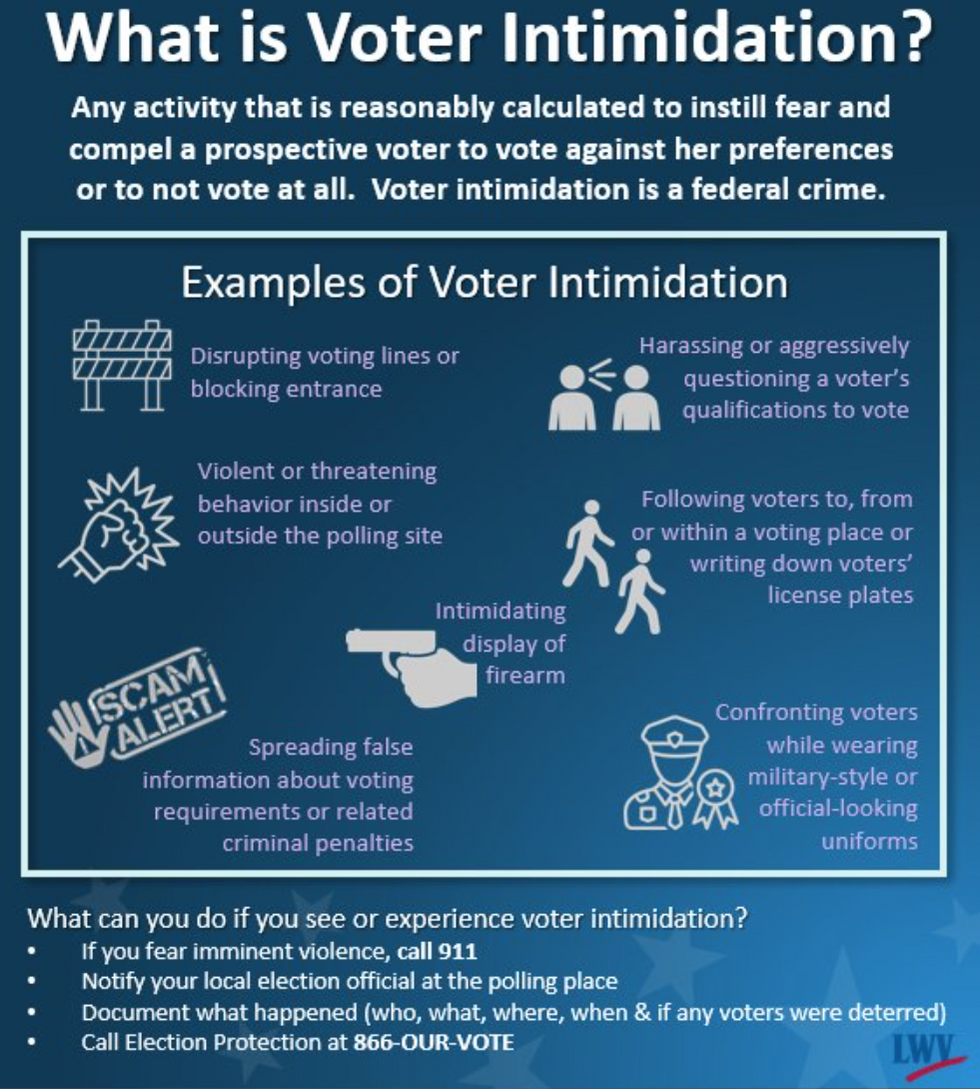With President Trump's Sept. 29 call for supporters to flood polling places to "watch the vote," there's more anxiety than normal for voters heading to the polls in 2020. The Advancement Project today issued a concise six-step guide for concerned voters.
Voters should remember that intimidation at the polling place is a federal crime, so the law will be on their side if they face intimidation, the Washington-based civil rights organization says. Voters should be mindful that any challenge to their vote must be based on a specific reason that's spelled out in the law. They have a right to know the reason their vote is being challenged and to hear from the precinct judge before the polls close. Voters should report any suspicious or aggressive behavior to officials on site. The Lawyers Committee for Civil Rights Under Law has established a hotline at 1-866-OUR-VOTE (1-866-667-8683) to provide real-time legal assistance.
 Six things to do if you face voter intimidationThe Advancement Project
Six things to do if you face voter intimidationThe Advancement Project
It's important to document the incident, especially the date, time and location, and write down the details of what you see. Report it to your county election officials, who have a duty to investigate each incident. The local district attorney may then be called upon to prosecute. Finally, voters are advised not to directly confront the people doing the intimidation, which can do more harm than good. Emotional or loud confrontations may escalate and draw unwanted intervention from the police, the Advancement Project says.
Elsewhere, Pew's Stateline project published this comprehensive look at how local officials in Ohio, North Carolina, Georgia and other states are preparing to meet efforts to intimidate voters.
The League of Women Voters is also keying in on voter intimidation in 2020, and it produced this handy graphic for how to recognize and combat activity designed to "instill fear" and suppress the vote.


















